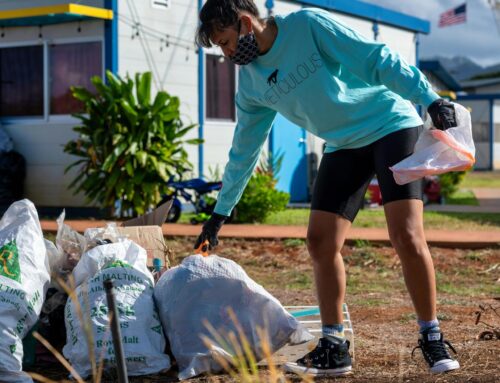It is an unfortunate reality that some of the cases we handle at Roadrunner Law Firm are Wrongful Death cases in New Mexico that involve the death of a person. Losing a loved one is always difficult, and presents not only grief, but concerns about finances, childcare, and other practical concerns. But when someone is killed in a senseless collision due to the carelessness of another person, which could have been avoided, the loss is even more painful. When a person is killed at the hands of a reckless, careless, or otherwise negligent individual, the survivors may have a legal claim against the wrongdoer. These cases, which involve a death, are broadly called “Wrongful Death cases.”
What Is “Wrongful Death” in New Mexico?
Not all personal injury cases are wrongful death claims, but all Wrongful Death claims are personal injury cases. Wrongful death cases arise out of all kinds of personal injury cases—motor vehicle collisions that lead to a death, premises liability/negligent security cases where someone was killed at a business, or even drive-by shootings. Every wrongful death case has to meet the legal requirements of a personal injury claim to go forward: Someone needs to have done something wrong (“negligence”); that wrongdoing must have been something that could have been avoided if the wrongdoer had acted properly (“breach of the duty of care”); the wrongdoing must have caused the injury or death (“causation”) and there must be consequences that happened as a result (“damages”). In a wrongful death claim, the damages are the loss of life, but also the lost earning potential of the person who was killed, and possibly the loss of close relationships between the surviving loved ones and the decedent.
The New Mexico Wrongful Death Act
It is important to understand that in a wrongful death claim, the responsible party could be a person or a company/corporation, or both. Just as all people have a duty to take care not to harm each other, businesses also have duties to keep their buildings and premises safe from hazards that might harm or kill visitors. The Wrongful Death Act applies to both negligent individuals and negligent companies to protect the survivors or estates of people killed in avoidable accidents. The New Mexico Wrongful Death Act, NMSA 1978, § 41-2-1 et seqv., provides a civil right to action (the right to file a lawsuit) for these survivors.
Who Brings a Claim Under the Wrongful Death Act?
A wrongful death lawsuit has to be brought by someone who is appointed the “Personal Representative” of the deceased person. That representative could be a relative of the deceased person, or it could be a lawyer or guardian appointed by the court—it just depends on the circumstances. Sometimes when the survivors are at odds with one another, or where there might be a question about who can claim rights to any money collected in the lawsuit, it is best to have a neutral party stand in for the deceased person in the lawsuit. Importantly, the personal representative appointed under the wrongful death act may be different from any personal representative appointed under the probate code. Also, just because someone has been appointed as a personal representative of a deceased person’s estate under the probate code does not mean they have been appointed as a personal representative under the Wrongful Death Act. These are two separate actions, and any money obtained as a result of a wrongful death suit does not go through probate, and cannot be used to satisfy debts of the deceased person.
Who Recovers the Money in a Wrongful Death Claim?
If a judgment or settlement is collected in a wrongful death lawsuit, the money recovered is distributed to the “statutory beneficiaries.” The Wrongful Death Act defines this term, but as a general rule of thumb the surviving spouse and surviving children, if any, are first in priority. If there is a surviving spouse and children, they will collect all of the funds received in the Wrongful Death action under the formula laid out in the law. So if there is a surviving spouse and no child, then the whole settlement or award goes to the spouse. If there is a surviving spouse and a child or grandchild, then one-half would go to the surviving spouse and the remaining one-half of the settlement or award would go to the children and grandchildren, the grandchildren taking by “right of representation.”
Seek the Help of an Attorney Knowledgeable In the Wrongful Death Act of New Mexico
Wrongful death lawsuits, like other personal injury cases, are subject to filing deadlines called statutes of limitations. Generally, every action instituted under the New Mexico Wrongful Death Act must be brought within three years after the cause of action accrues, but there are important exceptions! An attorney can analyze the facts of your case to tell you when your statute of limitation runs. It is important to contact a lawyer as soon as possible after a death occurs to protect the rights of any remaining beneficiaries.
Wrongful death suits are a very specialized kind of personal injury case, and require an experienced lawyer to handle all elements of the case from start to finish. Roadrunner Law Firm has handled hundreds of these kinds of claims in New Mexico, and has obtained millions of dollars in awards and settlements for the surviving family members of individuals killed due to negligence. If your loved one was killed due to someone else’s bad conduct, call us today for your free case evaluation. (505) 444-4321.
Results:
$9.5 million dollar default judgment in case involving negligent discharge of firearm leading to client death
$400,000.00 policy limits award in drag racing auto collision causing death of client
Full insurance policy limits in bicycle versus vehicle fatality (with disputed fault)
Full insurance policy limits in motorcycle fatality involving vehicle left-turn (with disputed fault)



